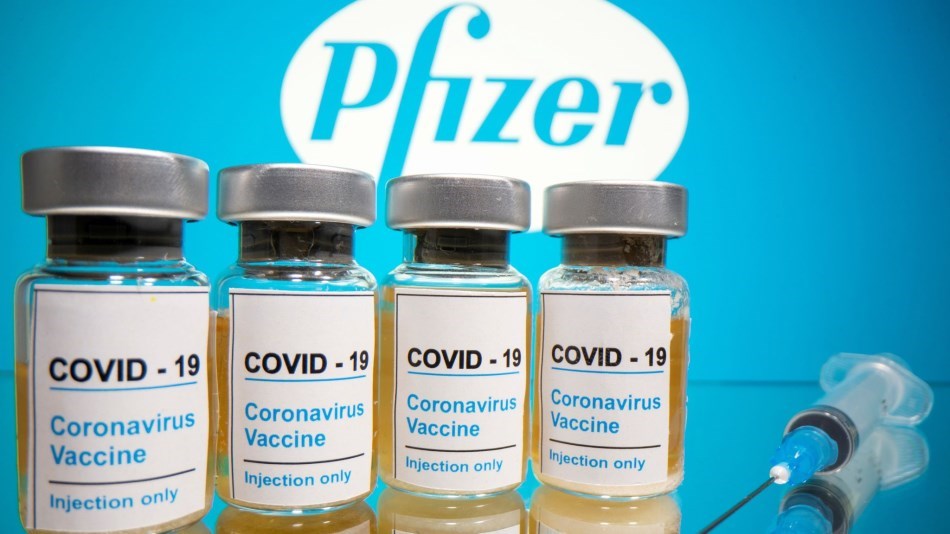Phase 3 of Pfizer's trial involved 43,538 participants from six countries. They received two doses of either the immunisation or a placebo, with 90% protected from the virus within 28 days of having their jabs.
Only 94 people who took part in the trial developed coronavirus and no serious safety concerns were reported, the US pharmaceutical firm said.
.jpg)
"Today is a great day for science and humanity. The first set of results from our Phase 3 COVID-19 vaccine trial provides the initial evidence of our vaccine's ability to prevent COVID-19," said Pfizer chairman and chief executive Dr Albert Bourla.
"With today's news, we are a significant step closer to providing people around the world with a much-needed breakthrough to help bring an end to this global health crisis.
The news saw stock markets surge, with the FTSE 100 jumping by 5.5% – adding £82bn to the value of its shares and resulting in its best trading day since March.
.jpg)
Pfizer and BioNTech's vaccine is one of around 12 worldwide in the final stages of testing, but it is the first to produce any results.
The US and German companies say they can supply 50 million doses by the end of 2020 and 1.3 billion by the end of 2021.
The UK government has secured around 40 million doses – enough for 20 million people – and could roll out 10 million by the end of the year if they are approved for use in time.
Pfizer says that it will apply to the US healthcare regulator – the Food and Drug Administration – by the end of this month for emergency approval to use the vaccine.
A UK government spokesman said it is "optimistic about a breakthrough" but urged people to remember "there are no guarantees".
.jpg)
When the NHS is ready to roll out the vaccine, people who live and work in care homes will be top priority, followed by the elderly and the clinically vulnerable, they added.
Chief medical officer Professor Chris Whitty described it as "a reason for optimism for 2021".
But Brendan Wren, a professor of microbial pathogenesis at the London School of Hygiene and Tropical Medicine, suggested it may prove difficult for GPs to store the vaccines as they must be kept at -80C temperatures.
He told Sky News: "You can certainly make a lot of it but whether you could get it to everybody that needs it is another issue and that's why it's good that there are other vaccines available."
.jpg)
Sky News science correspondent Thomas Moore said the results "exceed the expectations of many scientists".
Peter Horby, professor of emerging diseases and global health at the University of Oxford, described the development as a "watershed moment".
He said: "This news made me smile from ear to ear. It is a relief to see such positive results on this vaccine and bodes well for COVID-19 vaccines in general."
Michael Head, senior research fellow in global health at the University of Southampton, commented: "This cautiously sounds like an excellent result from the Phase 3, but we should remain a little cautious – the study is ongoing.
"However, if the final results show an effectiveness of anywhere near 90% with response in elderly and ethnic minority populations, that is an excellent result for a first generation vaccine."
William Schaffner, infectious disease expert at Vanderbilt University Medical Center in Nashville, Tennessee, added: "The efficacy data is really impressive.
"This is better than most of us anticipated. I would have been delighted with efficacy of 70% or 75%, 90% is very impressive for any vaccine. The study isn't completed yet, but nonetheless the data looks very solid."








